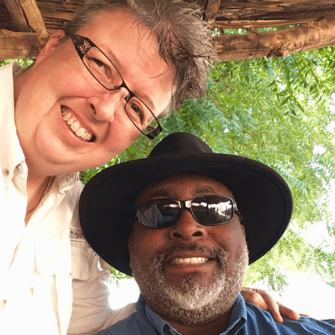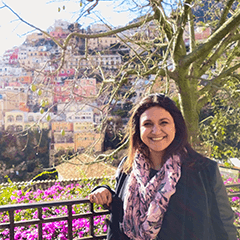Cut Down on Vacation Costs

Vacations are a great way to reduce the stress of everyday life. It can be nice to take a break from the grind and relax on a beach. Or you may prefer a more rigorous adventure like mountain climbing, parasailing, or deep-sea diving.
However, vacations can also be expensive. Whatever stress you may relieve by going on vacation can come back to an even greater degree once you are home and start looking over your bills — especially if you can’t afford to pay them. With that in mind, here are some tips to help keep your hard-earned money in your bank account instead of with your travel agent.
Budget before you book
A vacation is supposed to be a break from your work life, so it may be unappealing to add extra work by planning your vacation in detail. However, dedicating a little time to develop a vacation budget will prevent a lot of headaches when you return to the real world.
Travel writer Anthony Bianco insists that travelers set a budget based on the length of their trip and the cost to travel to their destination. Creating a separate savings account for travel expenses can help, too.
“Once this amount is determined, regularly contribute the amount of money you need per week into a separate account over a set number of weeks — calculate your savings time/schedule and stick to it. Be ruthless. Cut whatever you do not need, and add more to your account if possible until you reach your required budget.”
Bianco also suggests padding your travel savings account with about 10% to 20% more money than you budgeted in case you need a buffer or have an emergency while on your trip.
Time your travel for price
Certain times of the year tend to be more popular for vacations. Unfortunately, that means it is more expensive to take a vacation during those times. Fortunately, that means it is cheaper to take a vacation during other times — and probably less crowded too.
While certain areas may be known for their seasonal attractions, they may also have more affordable off-season options coupled with cheaper lodging rates. Bianco says this is the reason he tries to avoid traveling during peak season.
“If there is a huge demand and limited supply of hotel rooms, the chance of you scoring a bargain is pretty slim, because hotel owners know that someone else will come along with the money they want,” Bianco says. “Trying to book early can help, or trying to find a spot [during] either side of peak demand will reduce costs.”
By traveling during slower travel times or the off-season, you also have the perk of more flexibility, Bianco adds. “The demand is down, but supply is up and businesses are more ready to give you a substantial discount.”
This can also apply to flying, which is why Newsha Tarifard, owner of boutique travel company TravelWell Adventures, recommends booking airline tickets for weekday travel, particularly between Monday and Thursday.
Consider alternative accommodations
The more flexible you are about where you stay while on vacation, the easier it will be to save money. Instead of booking a five-star hotel for the week, consider a vacation rental home like an Airbnb. The savings can be used for other activities or to help ensure you don’t rack up a hefty credit card bill on lodging alone.
“Accommodation is usually the most expensive piece of a vacation and often the least used,” Tarifard says. “Unless you’re planning on lounging in your hotel room all day, it’s a waste of money to spend a ton on fancy lodging.”
Look for deals
Online research can be your best friend when it comes to finding the most affordable getaway options and deals available, according to Nermeen Ghneim, a Supervisory Financial Analyst at the U.S. Small Business Administration.
“Read reviews and investigate coupon sites like Groupon that may have special rates on the places you want to visit,” Ghneim suggests. “Investigate restaurants that you may want to try, and see if they have deals for specific days or even certain times of day.”
Some deal sites may even offer vacation packages that include airfare or other travel accommodations with the cost of the booking. However, pay attention to blackout dates and other restrictions if you consider one of these deals.
Skip the flight
There is a reason why the road trip is an American tradition, and it is because driving, despite the cost of gas, will almost always be cheaper than flying. So maybe it’s worth skipping the stress of airfare altogether, especially if you have an entire family to fly.
If driving isn’t your thing, there are less costly travel options than the car. Consider for a moment, the humble bus. No, it is not particularly glamorous, but it is probably one of the cheapest options available assuming you do not have too many passengers.
What if you are planning to travel across the ocean? Even if you have to fly to your destination, that does not stop you from taking the bus once you get there.
“Bus fares across Europe are really cheap, allowing you to easily extend your budget and visit a lot of destinations for less,” suggests Staffo Dobrev, the Director of Communications at the bus and train travel booking platform Wanderu. “Some might argue that by traveling by bus you sacrifice time that could be spent exploring. However, distances in Europe are relatively short.”
Dobrev referred us to a compilation of Italian bus schedules and ticket costs that Wanderu compiled. We encourage you to check it out!
Then there is the wonder of rail travel. Depending on the destination, train trips in the United States may be cheaper than flying.
Look for rental car deals
If you find yourself driving and in need of a rental car, look for deals. You may already have access to discount benefits if you have an AAA or Costco membership.
If you need a short-term car rental and have flexible travel plans, Turo may be a good option. It’s like Airbnb, but for cars, and the car that’s on loan to you belongs to a person instead of a company.
Become a browser spy
Your online activity is usually monitored in some way. Typically, your internet activity is tracked so that companies can market products or services to you.
“Always browse for hotels in the incognito mode on your browser,” advises Saurabh Jindal, founder of travel startup Talk Travel. “Incognito mode does not store cookies, served by the website, on your system and thus cannot track you. It is an unwritten truth that the booking websites track users through the cookies and hence bump up prices when users continuously search for something specific.”
You should also consider calling the hotel before you book your accommodations online. Booking platforms tend to earn commissions, Jindal points out, so you may be able to get a better price by going through the hotel directly once you have confirmed they have availability.
Do as much as possible for free
You know what's cheaper than cheap? Free. There are many free activities in almost every location around the world. Saurabh Jindal drew our attention to Paris’s free day, which is the first Sunday of every month in a typically expensive city. No matter where you are going, a little research into free activities can go a long way.
Another option: find someone who has already compiled the research. Cindy Richards, editor-in-chief and co-owner of SheBuysTravel.com (formerly TravelingMom.com), created one such collection of free activities across the United States.
Cut out vacation memorabilia
Even something as simple as souvenirs can add up very quickly when on vacation, especially if you are the kind of person who always wants to bring back a treat for every person in your life.
“If you like to buy souvenirs, learn what is available before you go,” suggests Trina and Tim of the Team Hazard Rides Again travel blog. “If the towns you are visiting specialize in textiles, woodworking, and silver jewelry, decide what you really want and allow for it in your budget. Then, when you get to your destination, stick to the souvenir-buying plan.”
Trina and Tim recommend buying one or two nice items instead of splurging on trinkets that may not add much value to your life. Clothes is another area to reconsider:
“Before buying traditional clothing, ask yourself whether you would wear it at home. If the answer is no, do not buy it, no matter how cool it seems at that moment.”
Eat local
For many people, food is the highlight of their vacation. But if you are not careful, your full tummy can lead to an empty bank account.
The Team Hazard duo advises eating local.
Fancy restaurants, especially in tourist areas, rarely have the best food. They are more about atmosphere and comfort. Eat at the places where the recipes come from the owner’s home kitchen, where the chairs are plastic, and cats are wandering around. Eat from the roadside stand where food is being cooked up fresh on the spot and sold to locals.
If you stay somewhere with access to a kitchen, you can save even more money on your food costs by dining in, especially in cities or countries where the prices on restaurant menus can quickly add up.
“Cooking (or even wine and cheese nights) also gives you the opportunity to experience local living and the different sorts of foods and produce offered in that particular country,” Tarifard says. “You will also eat a healthier meal than what you are probably ordering when out on the town — a much needed break for your body.”
The bottom line
Whether you decide to use credit card points, a vacation savings account, both, or neither, at some point, you will have to pay for your travel expenses. With that in mind, it’s best to limit the amount of money you owe to your credit card company and maximize your savings by keeping your travel costs as low as possible.

The Travel Tart, or Anthony Bianco, discovered he enjoyed traveling the world when he was sent to a former war zone for work – Kosovo – as his first venture outside of Australia and New Zealand. This created a habit of visiting places that most package tourists avoid. He has since traveled to more than 50 countries across six continents. He writes about the funny, offbeat, and weird aspects of world travel today and has appeared in numerous publications online, in print, and even on radio. Follow him @TheTravelTart.

Staffo Dobrev is the Director of Communications at the bus and train travel booking platform Wanderu. Having lived in some of the greatest cities in the world, Dobrev has always had a soft spot for travel and adventures. Instead of hitting the usual tourist attractions though, he prefers to make friends with local people and check out fun places and activities that are not in the travel books.

Nermeen Ghneim is a Supervisory Financial Analyst at the U.S. Small Business Administration. She launched the Savvy Dollar blog to share her ideas on personal finance. Her mission is to help others learn how to save more, earn more, and maintain a healthy work-life balance.

Trina and Tim, also known as Team Hazard, want to bring you along on their trip around the world. They always share the real story of the places they go, not just the tourist sights and glamour shots.

Saurabh Jindal is the founder of Talk Travel, a voice application that connects travelers to local destination experts to make travel planning simpler, faster, and easier.

Cindy Richards is a Pulitzer Prize nominated journalist who serves as editor-in-chief and co-owner of SheBuysTravel.com (formerly TravelingMom.com). She has been a reporter, editor, and columnist at the Chicago Sun-Times and Chicago Tribune, an editor at Chicago Parent and Catalyst Chicago, and an instructor in the graduate school at Northwestern University's prestigious Medill School of Journalism.

Newsha Tarifard is the owner of TravelWell Adventures, a boutique company that runs active group trips for the 18 to 35 year old demographic and curates custom travel itineraries for anyone looking for authentic travel experiences. She is an intrepid traveler who has visited more than 50 countries, mostly as a solo traveler. She loves to meet locals, discover hidden gems, try local dishes, and has a plethora of travel hacks up her sleeve.

